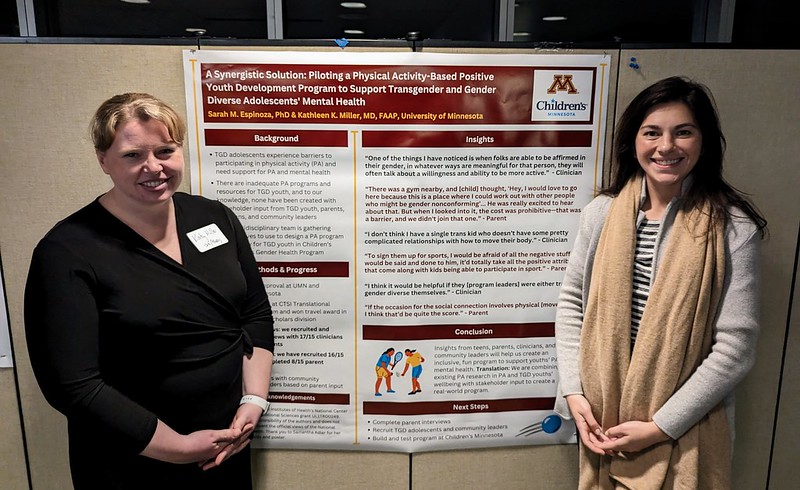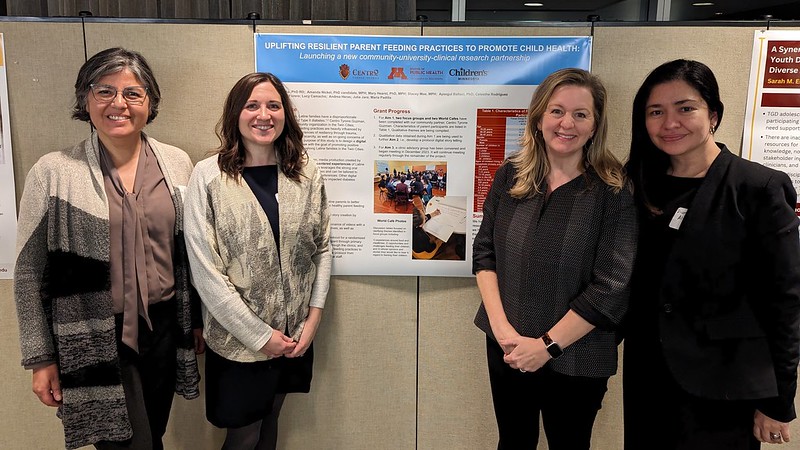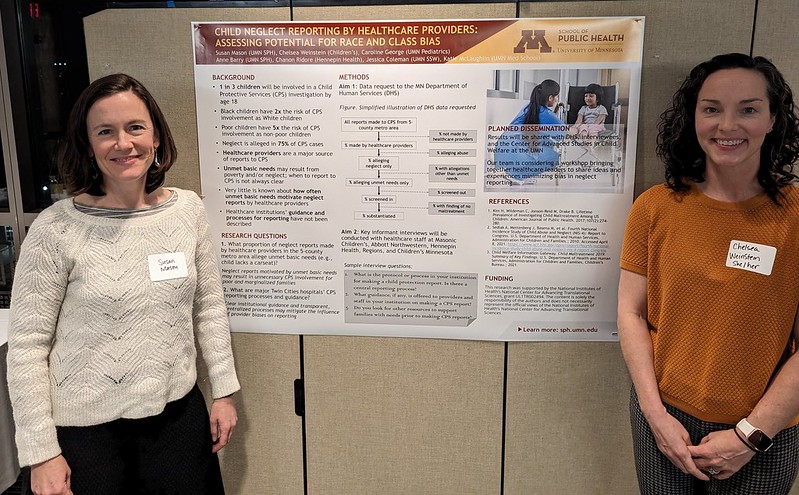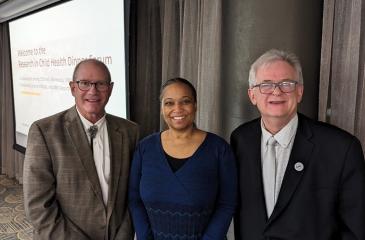More than 75 attendees gathered in early December at the University of Minnesota Campus Club for the Research in Child Health Dinner Forum. This annual event hosts child health researchers and practitioners from Children's Minnesota, the University of Minnesota, Hennepin Healthcare, and community-based child-health partners.
The event is an outgrowth of the Child Health Collaborative Grant, a program founded by Children’s Minnesota, the U of M Department of Pediatrics, and CTSI.The Collaborative has awarded funding annually since 2014 as part of a broader effort to support child health research partnerships.
Attendees at the December event heard a keynote address from Dr. Brooke Cunningham, commissioner for the Minnesota Department of Health, on major child health priorities in Minnesota. There was also a poster session with current Child Health Collaborative grantees and time for discussion and networking.
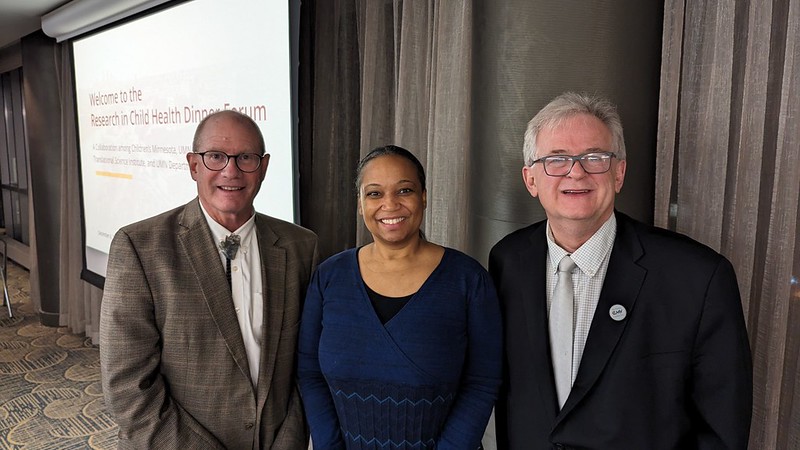
In her keynote address, Commissioner Cunningham urged attendees to think expansively when planning a child health research agenda.
“To advance children's health we need to attend to women's wellbeing, and specifically their economic well-being,” said Cunningham. “Which means that the scientists and clinician investigators who work within academic and community settings need to involve their social science and public policy colleagues in projects to advance children's health.”
Cunningham supports a child health research program that is child plus primary caregiver centric, even when looking at a specific disease, since living conditions and socio-structural realities affect disease outcomes. They are the context and the constraints that parents and families have to navigate to get the best outcomes for their children.
“We also need to build and invest in community and all of the ways to promote childhood health,” said Cunningham. “So my call to you is to move beyond health care. Because if we continue to predominantly focus on health care, even in academic medical centers, we will continue to face the same problems. And in 20 years people will come to this event and have largely the same conversation.”
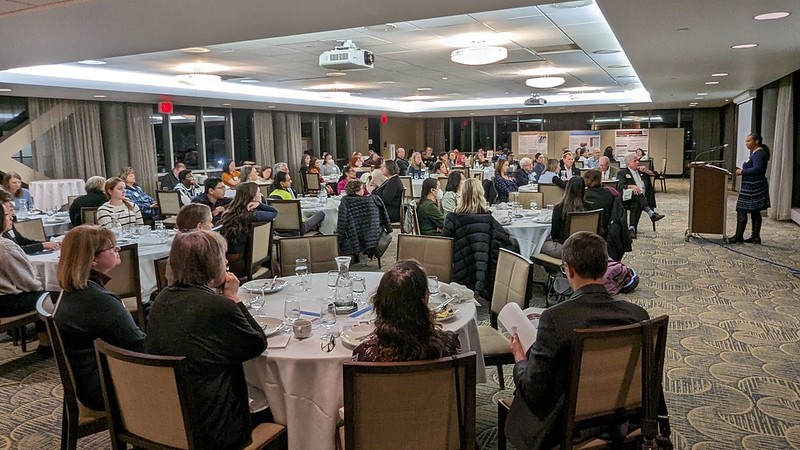
She stressed the need to involve parents, grandparents, and community members in creating the solutions. Funders are looking for deep, robust partnerships that go beyond community advisory boards. Instead, there is a need for a deeper level of engagement, with community and academic providers functioning as equal partners engaged in research design, sharing responsibilities, and functioning as true co-principal investigators.
“We need partners who are up for the hard work of transformation. We need a transformational science institute that both empowers people and doesn't ask more of patients than we're asking of the policymakers. And we need promotion and tenure tracks and NIH funding that rewards and invests in that type of work.”
Based upon audience participation, several thematic areas were identified which will likely be emphasized for grant applications in the next funding cycle, including topics addressing gun violence, racism, gender disparities, and addiction. Any and all ideas are welcome that might improve health outcomes for children living in our surrounding communities and our five-state referral basins.
The Request for Applications (RFA) for the next round of Child Health Collaborative grants will be announced sometime this spring. Sign up for the CTSI email list to be notified when the RFA is released.
Posters presented by current Child Health Collaborative grantees:
